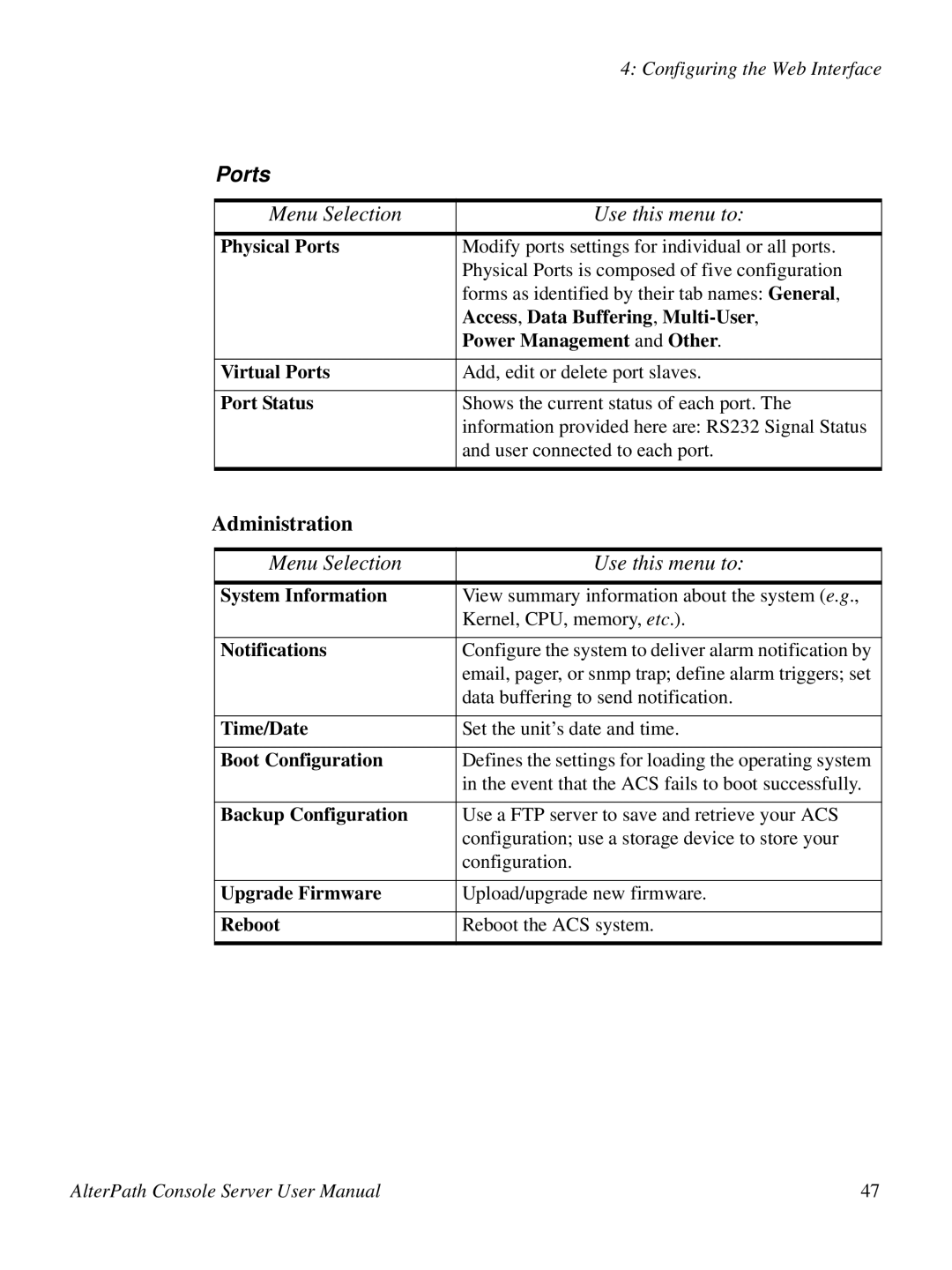4: Configuring the Web Interface
Ports
| Menu Selection | Use this menu to: |
| Physical Ports | Modify ports settings for individual or all ports. |
|
| Physical Ports is composed of five configuration |
|
| forms as identified by their tab names: General, |
|
| Access, Data Buffering, |
|
| Power Management and Other. |
|
|
|
| Virtual Ports | Add, edit or delete port slaves. |
|
|
|
| Port Status | Shows the current status of each port. The |
|
| information provided here are: RS232 Signal Status |
|
| and user connected to each port. |
|
|
|
Administration |
| |
|
|
|
| Menu Selection | Use this menu to: |
| System Information | View summary information about the system (e.g., |
|
| Kernel, CPU, memory, etc.). |
|
|
|
| Notifications | Configure the system to deliver alarm notification by |
|
| email, pager, or snmp trap; define alarm triggers; set |
|
| data buffering to send notification. |
|
|
|
| Time/Date | Set the unit’s date and time. |
|
|
|
| Boot Configuration | Defines the settings for loading the operating system |
|
| in the event that the ACS fails to boot successfully. |
|
|
|
| Backup Configuration | Use a FTP server to save and retrieve your ACS |
|
| configuration; use a storage device to store your |
|
| configuration. |
|
|
|
| Upgrade Firmware | Upload/upgrade new firmware. |
|
|
|
| Reboot | Reboot the ACS system. |
|
|
|
AlterPath Console Server User Manual | 47 |
